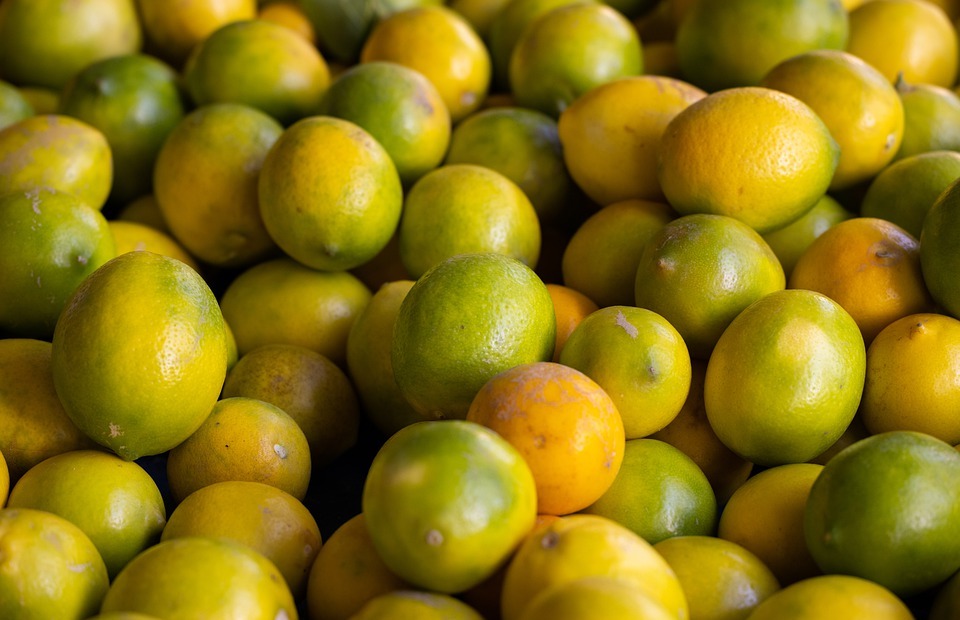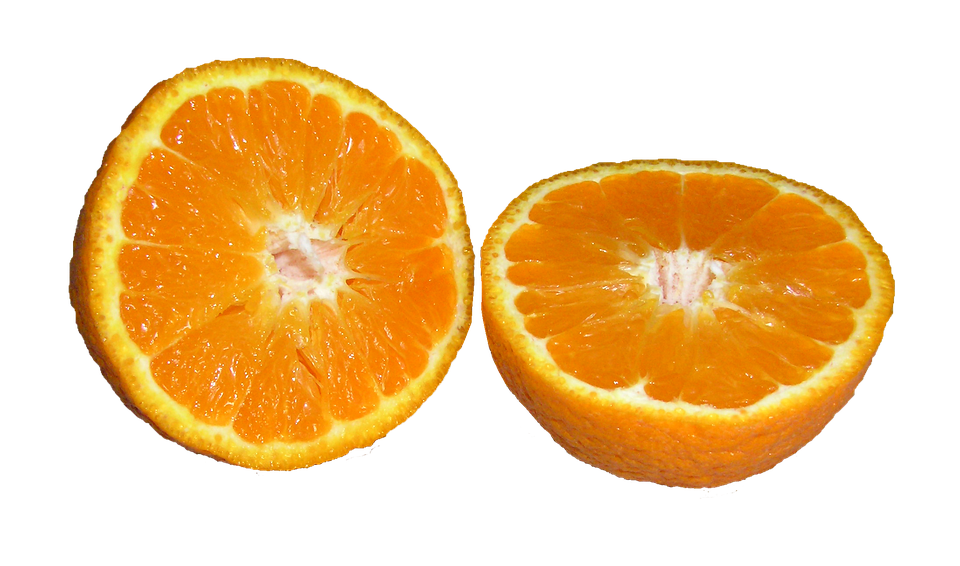As a dog owner, I'm always looking for healthy and yummy treats for my furry friend. And who doesn't love the sweet and juicy taste of mandarin oranges? But before you share your fruit salad with your canine companion, let's delve into the world of canine nutrition and see if mandarins are a safe snack for our four-legged friends.
(Part 1) A Citrusy Conundrum: The Sweet and Sour Truth

So, can dogs eat mandarins? It's not a simple yes or no answer. Like many fruits, mandarins aren't inherently poisonous to dogs. However, the catch is moderation. Mandarin oranges contain certain compounds that, while not necessarily toxic, can cause problems for our furry friends if they eat too much.
The Citrus Dilemma: A Sour Note for Canines
The main worry with mandarins is their citrusy nature. Mandarin oranges are packed with citric acid, which can upset a dog's stomach and cause digestive problems, especially if they're not used to eating acidic foods. Imagine eating a whole lemon – it might make your tummy feel funny, right? The same principle applies to our furry pals.
Another thing to consider is essential oils, which are found in the rind and leaves of citrus fruits. These oils can be toxic to dogs if ingested. Even if you think "I'll just peel the orange," remember that even a tiny bit of the peel or leaves can contain enough essential oils to make your dog feel unwell.
(Part 2) The Fine Print: What to Watch Out For

Let's get specific about what to keep an eye out for when it comes to mandarins and your dog:
1. Stomach Upset: The Most Common Concern
The most common side effect of dogs eating mandarins is stomach upset. This can show up as:
- Vomiting – That's right, your dog might throw up after eating a mandarin orange.
- Diarrhea – This is another common symptom, and it can be quite messy.
- Abdominal pain – Your dog might whimper or show signs of discomfort in their belly area.
- Gas – Yes, even dogs can get gassy after eating something they shouldn't.
If your dog eats a tiny bit of mandarin and experiences any of these symptoms, it's usually not a big deal. But if the symptoms are severe or last a long time, it's a good idea to call your vet.
2. The Sneaky Citrus Oils: Hidden Dangers
As we talked about, the essential oils in the peel and leaves of citrus fruits can be harmful to dogs. These oils can cause:
- Vomiting – Again, this is a common sign of oil toxicity.
- Diarrhea – This is another frequent symptom.
- Loss of coordination – Your dog might become unsteady on their feet or have trouble walking.
- Depression – They might seem lethargic or uninterested in their usual activities.
- Seizures (in severe cases) – This is a serious condition and requires immediate veterinary attention.
It's absolutely crucial to make sure your dog never eats any part of the mandarin peel or leaves. Even a little bit can be dangerous, especially for smaller dogs.
3. A Sweet Treat Gone Wrong: Sugar's Secret Influence
Mandarin oranges are also high in sugar. While a little bit of fruit sugar isn't harmful, too much can contribute to weight gain and dental problems. So, keep mandarin oranges as an occasional treat, not a regular part of your dog's diet.
(Part 3) Personal Experience: A Cautionary Tale

To be honest, I used to think mandarins were fine for dogs. I remember one summer, we were enjoying some fresh fruit, and my Labrador, Charlie, was giving me those big, hopeful eyes. I thought, "Oh, just a tiny bit won't hurt." So, I gave him a small piece of mandarin.
Well, let's just say Charlie didn't enjoy the experience. He had diarrhea for the rest of the day. I felt awful for not doing my research first. That experience taught me a valuable lesson: it's always better to be safe than sorry when feeding your dog human food.
(Part 4) Alternatives: Safe and Delicious Dog-Friendly Treats
If you're looking for a healthy and yummy treat for your dog, there are tons of safe alternatives to mandarin oranges. Here are some ideas:
1. The Classics: Apples and Bananas
Apples and bananas are excellent choices for dog treats. They're packed with fiber, vitamins, and minerals, and most dogs love them. Just make sure to remove the apple core and seeds, which can be a choking hazard.
2. Frozen Delights: Berries and Watermelon
Frozen berries and watermelon are refreshing and hydrating treats for dogs, especially in hot weather. Just make sure to remove any seeds and cut the watermelon into bite-sized pieces to prevent choking.
3. The Crunch Factor: Carrots and Celery
Carrots and celery are great for dental hygiene and can help keep your dog's teeth clean. They're also low-calorie snacks that won't make your furry friend gain too much weight. Be sure to cut them into small, manageable pieces to prevent choking.
(Part 5) The Importance of Moderation: Treats are Treats, Not Meals
Whether you're thinking about mandarin oranges or any other human food for your dog, remember this golden rule: moderation is key. Even if a food is considered safe for dogs, giving them too much can lead to digestive problems, weight gain, or other health issues.
Treats as a Small Part of the Diet
Think of treats as a small bonus on top of your dog's regular meals. They should only make up a very small percentage of their daily calorie intake.
(Part 6) Talking to Your Vet: The Best Source of Information
If you're unsure about whether a particular food is safe for your dog, always talk to your veterinarian. They're the best source of information when it comes to your dog's health and nutrition. They can also help you figure out the right portion sizes for treats, taking into account your dog's age, breed, weight, and overall health.
(Part 7) Beyond the Food Bowl: A Holistic Approach to Dog Care
While food is crucial for your dog's well-being, it's just one part of the picture. A holistic approach to dog care includes:
1. Regular Exercise: Keeping Them Active and Healthy
Physical activity is essential for keeping your dog healthy and happy. Make sure to give them plenty of chances to exercise, whether it's a brisk walk, a jog in the park, or a game of fetch.
2. Mental Stimulation: Engaging Their Brains
Dogs need mental stimulation just as much as physical exercise. Engage their minds with interactive toys, puzzle feeders, and training sessions. A bored dog is more likely to get into trouble or develop anxiety.
3. Quality Time and Affection: The Power of Love and Connection
Don't forget the importance of quality time and affection. Spend time playing with your dog, cuddling on the couch, or simply giving them a good scratch behind the ears. A strong bond with your dog will contribute to their overall well-being.
(Part 8) The Bottom Line: A Case for Caution
In conclusion, while mandarins aren't necessarily poisonous to dogs, they're not the best treat because of their citric acid content and essential oils. Stomach upset is a common concern, and in some cases, the essential oils can be harmful.
It's better to be safe and stick to dog-friendly treats that are specifically made for canine consumption. If you do decide to give your dog a tiny piece of mandarin, do it under close supervision and watch them for any signs of discomfort. And always remember to talk to your veterinarian if you have any questions about what's safe for your furry friend to eat.
FAQs
1. Can dogs eat mandarin orange peel?
Absolutely not! Dogs should never eat mandarin orange peel. The peel has high concentrations of essential oils, which can be toxic to dogs, even in tiny amounts.
2. What if my dog accidentally eats a mandarin orange?
If your dog accidentally eats a small amount of mandarin orange, keep an eye on them for any signs of stomach upset, such as vomiting, diarrhea, or abdominal pain. If they seem fine, there's usually no need to worry. But if the symptoms are severe or persist, contact your vet.
3. Is it okay to give my dog mandarin orange juice?
It's best to avoid giving your dog mandarin orange juice. It's high in sugar and citric acid, both of which can upset your dog's stomach. Stick to water as your dog's main source of hydration.
4. Can puppies eat mandarins?
Puppies are even more sensitive to citrus fruits than adult dogs. It's best to avoid giving puppies mandarins altogether.
5. Are there any breeds of dogs that are more sensitive to citrus fruits?
While all dogs can experience stomach upset from citrus fruits, smaller breeds may be more prone to adverse reactions due to their smaller body size. If you have a small dog, it's especially important to be careful with citrus fruits.
Everyone is watching
-

Can Dogs Eat Bananas? A Guide to Safe Treats
DOGS & PUPPIESThis comprehensive guide will delve into the world of canine nutrition, focusing on the popular question: can ...
-

Can Dogs Eat Oranges? (Is It Safe or Toxic?)
DOGS & PUPPIESThis article delves into the question of whether dogs can safely consume oranges. We'll explore the nutrition...
-

Can Dogs Eat Grapes? The Shocking Truth About This Fruit
DOGS & PUPPIESThis article delves into the controversial topic of grapes and dogs, exploring the potential dangers associate...
-

Why Do Dogs Eat Poop? Understanding Coprophagia in Dogs
DOGS & PUPPIESThis article delves into the perplexing phenomenon of coprophagia, the act of eating faeces, in dogs. We explo...
-

Can Dogs Eat Shrimp? A Guide to Safety and Risks
DOGS & PUPPIESThis comprehensive guide dives into the world of shrimp and dogs, exploring the potential benefits and risks a...
